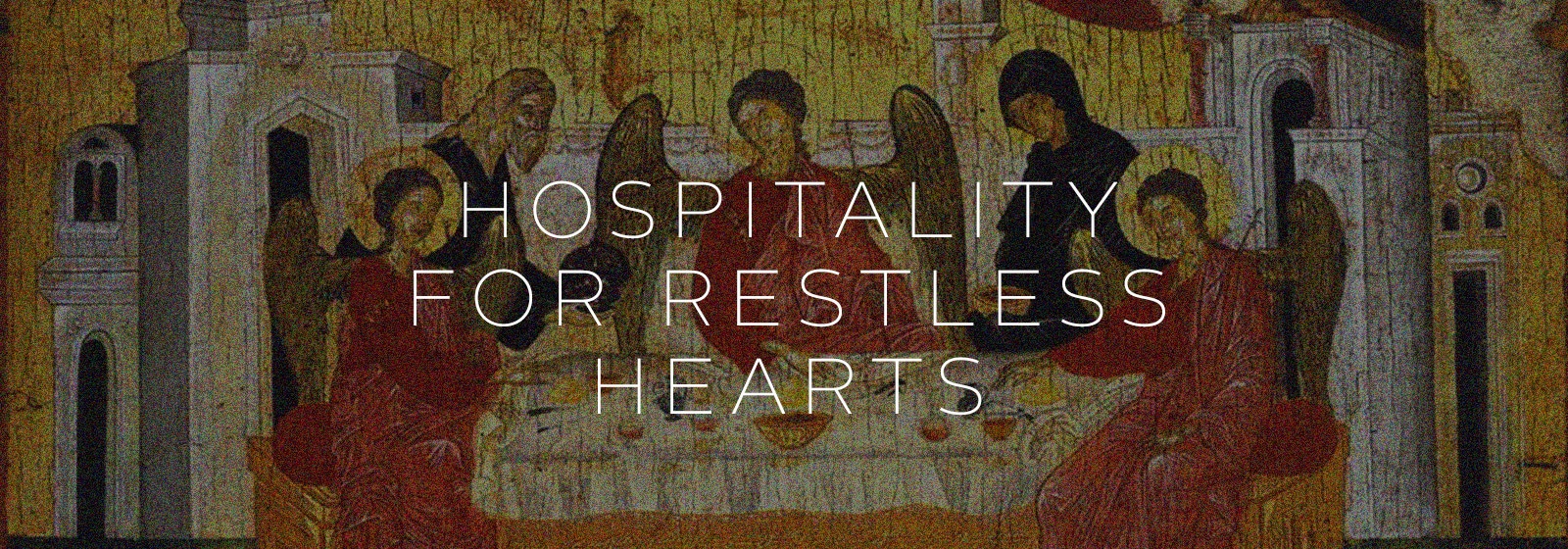Saturday morning can go one of two ways; a quick piece of toast washed down by coffee on the way to a seemingly inexhaustible list of chores and errands, or a leisurely meal seasoned with the sustaining joy of good conversation. I’m not saying that first isn’t a reasonable choice. Houses need to be cleaned and groceries need to be bought. But as I sat down with good friends last Saturday morning, I was nourished by more than an excellent breakfast.
My lonely, restless heart often longs for this type of nourishment. I am sometimes struck with a pang of loneliness so sharp that I, who will generally cross any street to avoid introspection, am forced to consider why. I ask myself a series of questions. Have I been too busy to talk to my friends? Have I neglected to call my family? Have I chosen Netflix and pyjamas over the effort of going out one too many times? These are reasonable questions because it does certainly take work to maintain the relationships that nourish us.
However, we sometimes find that we are the loneliest when we are in situations we expect to make us feel loved and know. Consider how painful it is for a man to be lonely within the marriage he expected to provide consistent intimacy or in the friendship that a woman has carefully nurtured for years. Consider the crushing disappointment a person might experience when she finds herself lonely in the family that God has brought together in the church. Many of us don’t need to imagine that last one; we feel it from time to time, even within our own congregations.
Blaming the situation itself is tempting and there are certainly times when we need to have painful conversations about how we feel with those around us. It’s also to tempting to look at other people, their gifts and relationships, and assume that they are immune to this sadness. The truth is, no one is immune. Loneliness is part of the fallen reality of our lives. At the root, it isn’t an external issue, but an internal one.
We are lonely because we were created for an intimacy with God and with others. In both cases, these relationships are marred and broken by our sin. We long for whole hearts. St. Augustine famously writes in his Confessions, “You have formed us for yourself, and our hearts are restless till they find rest in you.” Our loneliness can lead us to see what we are created for. It shows us that we are fashioned in the image of God, because God himself is three persons. Before the creation of world, God existed in the community of the Trinity and in the communion, mutuality and intimacy of Father, Son and the Holy Spirit, there is no loneliness. Likewise in the Garden, God created Adam and Eve for one another as well as for himself.
How do we as a church, whose mission is to move the heavenly kingdom of the future into the experience of the present, bring comfort to each others’ lonely hearts?
So what do we do when we find ourselves weighed down by this heavy human inevitability? The foundation of every relationship in the church is our relationship with God. Learning to rest in him is both a grace and a discipline. The grace is all God’s, but the discipline means carving out time to spend in his presence. Together, how do we as a church, whose mission is to move the heavenly kingdom of the future into the experience of the present, bring comfort to each others’ lonely hearts?
I have been blessed by a number of friends that continually invite me into their home for dinner, for lunch and for morning coffee. One of these friends regularly answers the phone, “Shannon! Hello! Where are you? Come over for coffee.” Being invited into someone’s home is a gift. The home is for every day living, for intimate friends, for family. To invite someone into your home is to share something of yourself with them.
This can be a daunting task. More than once I’ve been on the cusp of telling someone, “Come on over,” only to run through my mental checklist and reconsider. Is the living room vacuumed? All the dishes done? Is the coffee table littered with the detritus of the week? I have to remind myself that is mostly my own pride that demands this perfection, not consideration for my friends. Hospitality can war with pride.
Throughout Scripture we see the emphasis that is placed on welcoming people; Abraham with the strangers in the desert, Lydia giving Paul a temporary home. Most importantly, however, we see the hospitality of God, welcoming us to his table, providing the meal. When we invite one another into our homes, when we eat together, we are participating in the hospitality of God.
We can also address our loneliness by creating opportunities to open ourselves up to our brother and sisters. Our loneliness can be cavern deep and surface relationships, with either God or each other, don’t reach down far enough to touch it. It is important to make casual friendships at church. These connections provide us with a sense welcome and of comfort. But chatting over coffee once a week doesn’t really get to the nitty gritty of who we are, doesn’t build deep relationships. We need to break our large group down into small ones. Small groups are great because we get to practice being a family, a diverse group of individuals who, through the discipline of time, the practice of vulnerability and the joy of fellowship, begin to really know one another and together know God better.
Loneliness is a fact. C.S. Lewis writes that, “in this universe we are treated as strangers, [we have] the longing to be acknowledged, to meet with some response, to bridge some chasm that yawns between us and reality.” Thankfully, the good news is that we were not made for this world of loneliness; we are created for deep and abiding intimacy with God and our fellow creations. Let’s acknowledge this by serving one another well. Let’s be hospitable, following the Father who “sets the lonely in families.” (Ps. 68.6) Let’s shape our home groups as places of welcome and relational depth. And above all, let’s pray that God will increase our longing to come into the presence of the one who is always with us.




